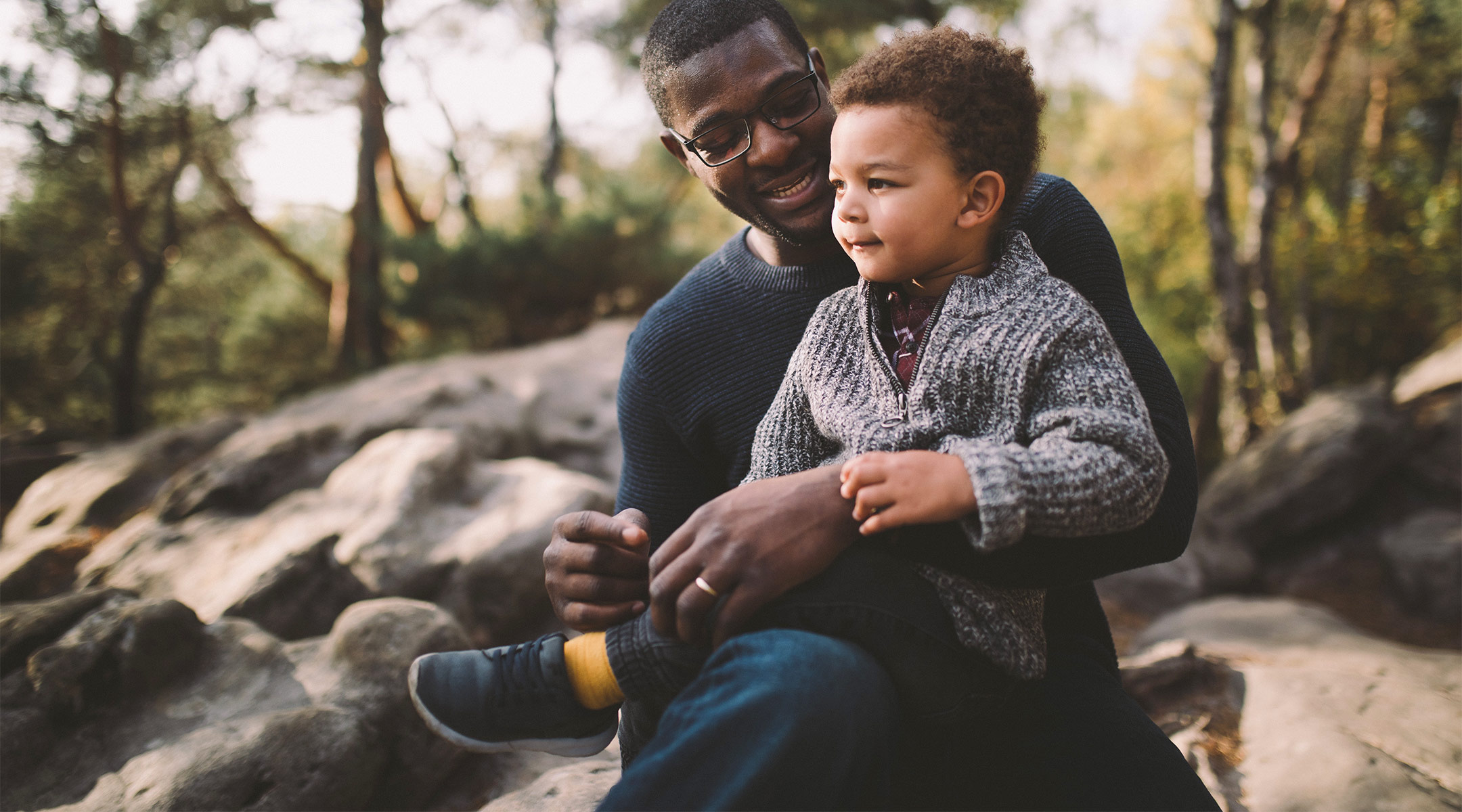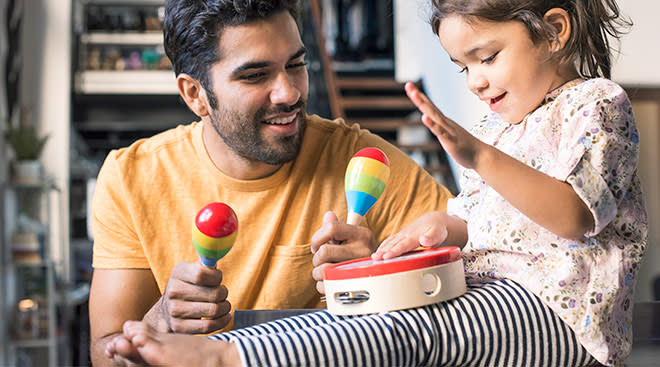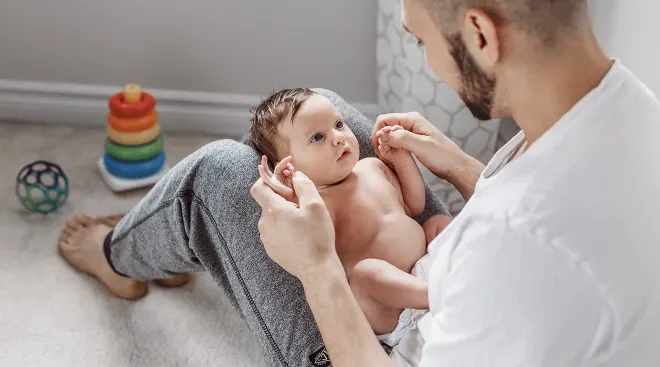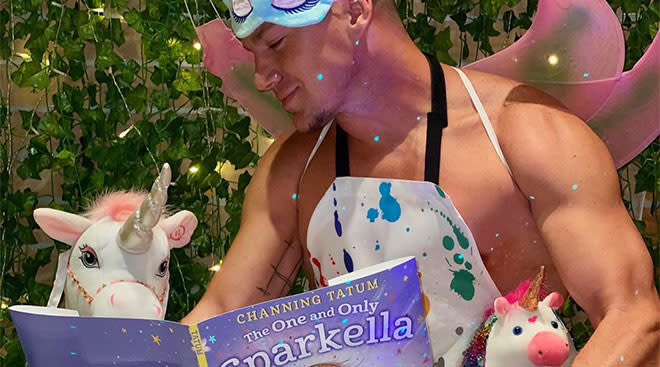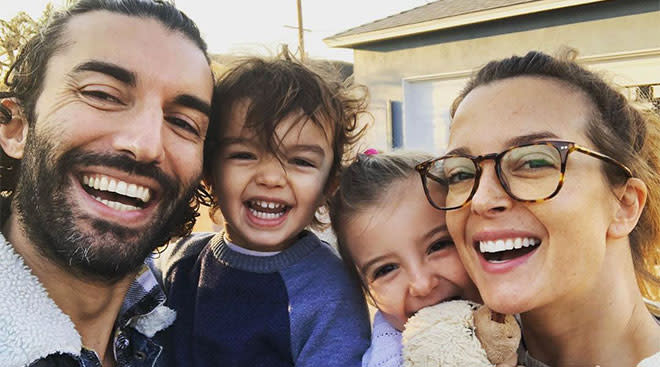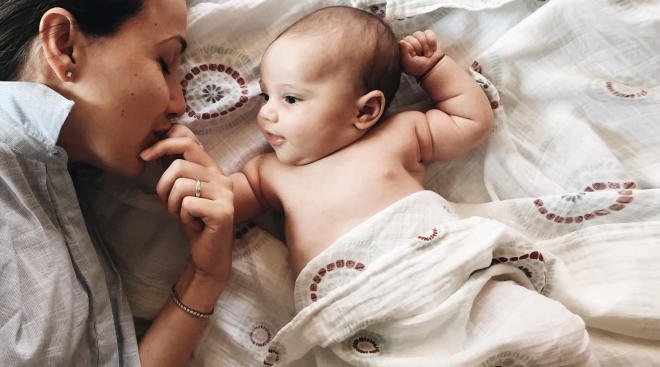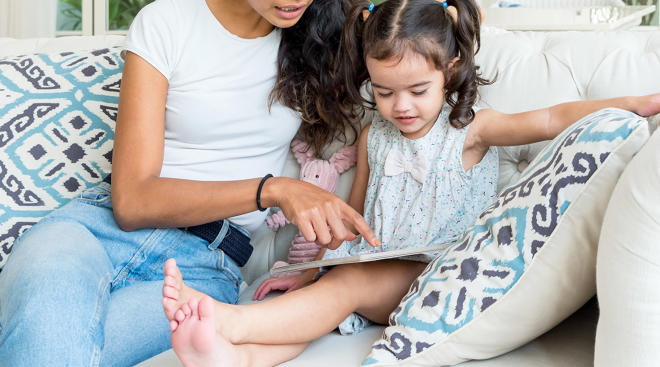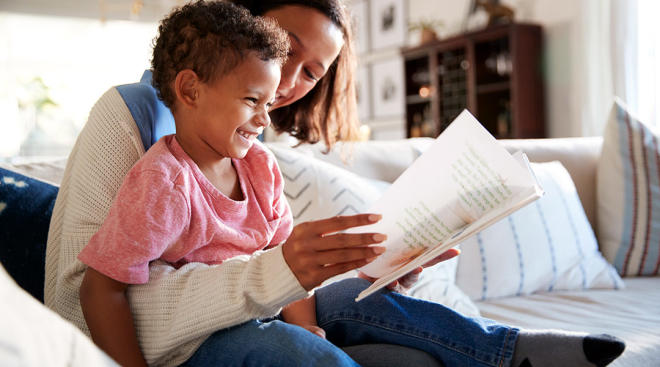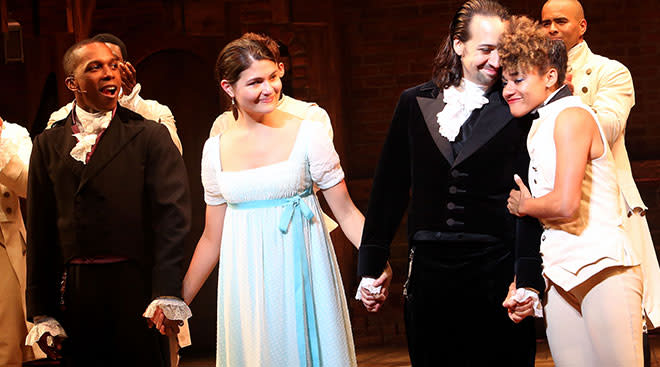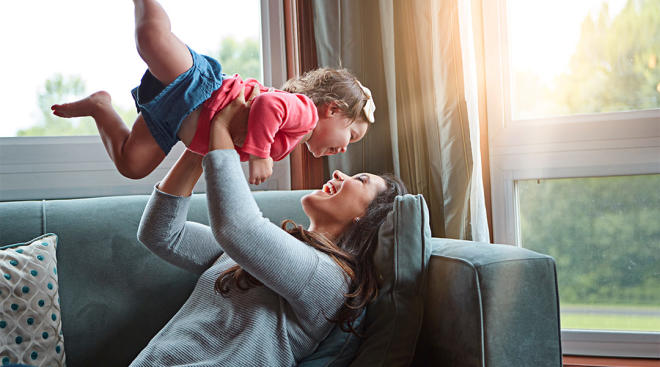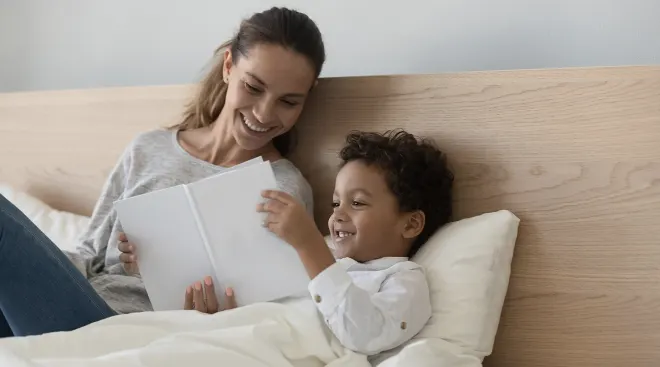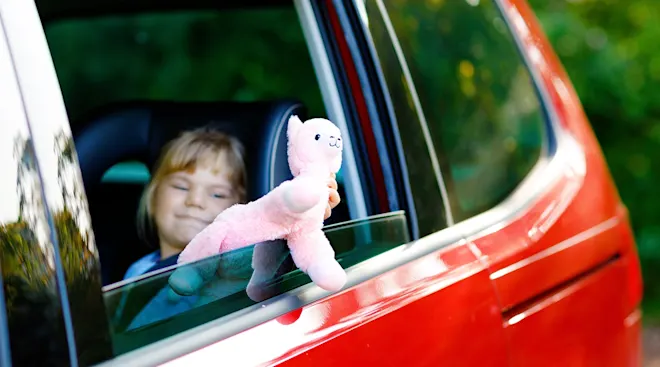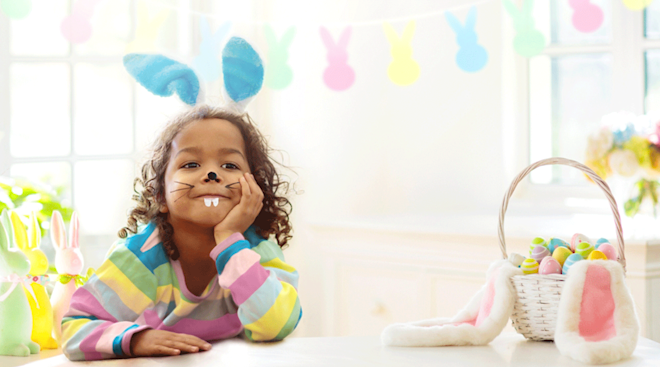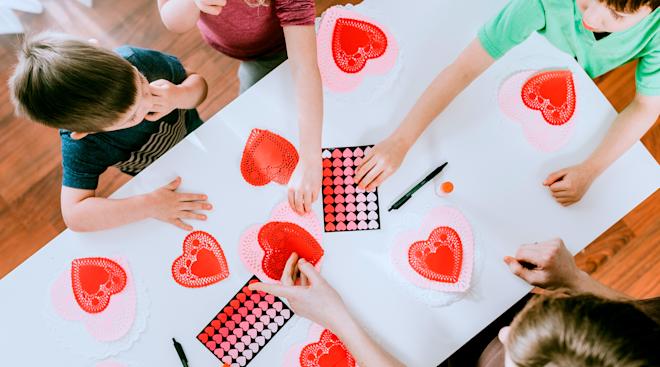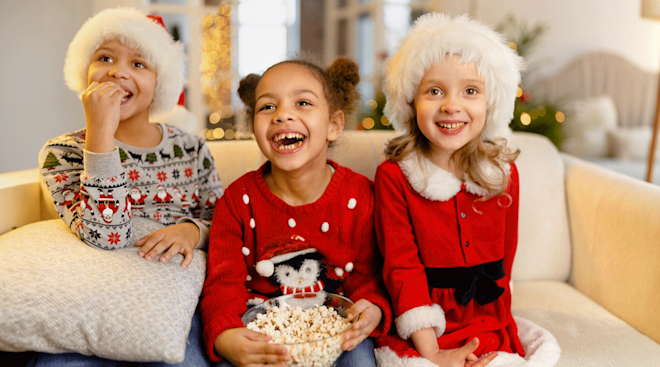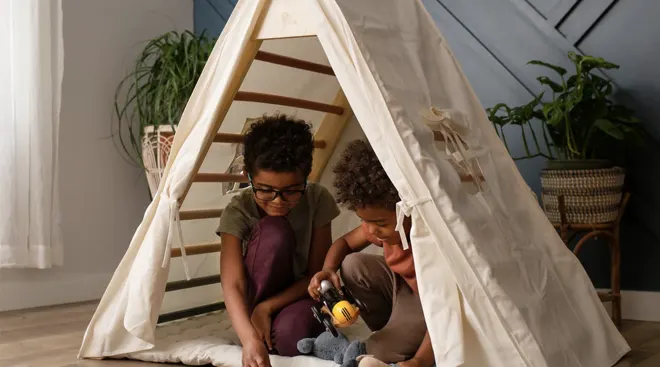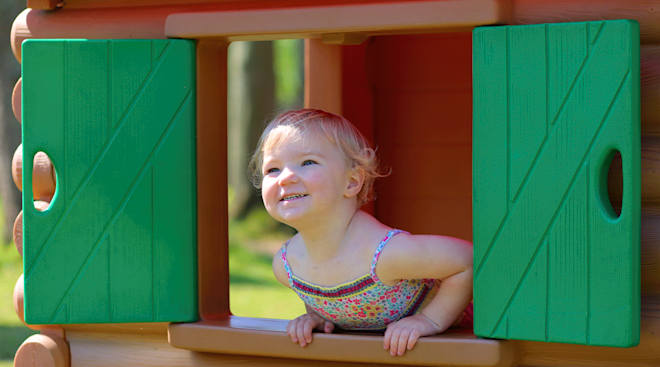How to Talk to Young Kids About Death
Death is one of those topics we tend to avoid in conversation, even among adults. So it’s no surprise that when it comes to discussing it with our kids, we’re instantly uncomfortable and unsure of what to say. But death is a fact of life and can come into our lives unexpectedly, whether it’s the loss of a goldfish or a beloved family member. So when are children developmentally ready to have the talk? Experts say kids as young as preschool age—and certainly by age 5—can start to understand the concept of death and what it means. If you’re ready to talk to your child about death, here are a few tips for how to broach the subject and comfort them in the wake of loss.
You don’t have to wait for the loss of a friend, family member or beloved pet to talk to your child about death. Point out life cycles in nature, suggests Judith Simon Prager, PhD, a therapist and co-author of Verbal First Aid: Help Your Kids Heal From Fear and Pain—and Come Out Strong. Maybe that means talking about the dead butterfly you just spotted, or the fall leaves fluttering to the ground. “The discussion of seasons, of a full life generally encompassing a certain amount of time—the butterfly’s being shorter than the dog’s, which is shorter than ours—provides us with references to the idea of life cycles, of beginnings and endings.”
Children’s books can be a wonderful option for introducing the topic of death. “With storybooks, you have a bit more control over what is said and how it’s expressed,” says Barbara Coloroso, parenting expert and author of Parenting Through Crisis: Helping Kids in Times of Loss, Grief and Change. For preschoolers, try The Fall of Freddy the Leaf, by Leo Buscalgia, which traces the life cycle of a leaf as a metaphor for a loved one who dies; or Lifetimes, by Bryan Mellonie, which explains death simply and directly, and allows parents to incorporate their own beliefs into the discussion. When Dinosaurs Die, by Laurie Krasny Brown and Marc Brown, is perfect for early elementary students, answering common questions like why people die and what death means in a clear, straightforward way.
Be absolutely clear about what “dead” means: the stopping of all bodily functions, which can’t be changed, and which happens to all living things. It’s a big concept for young ones to wrap their heads around, so put it into terms they can understand. “Say that the body can’t move, can’t feel, can’t breathe and can’t grow, and that it can’t be undone. There are no ‘do-overs,’” Coloroso says.
You may be tempted to sidestep the issue with euphemisms, but using phrases like “passed away” and “lost” simply confuse children—and could lead to bigger issues. “Avoid saying 'They went to sleep,’ which can make any child wonder if bedtime is safe,” Prager says. “Saying that Grandpa ‘went away’ or that someone ‘got sick and died’ can be threatening to a child’s imagination, raising more questions or fears of abandonment or illness. Don’t say ‘God wanted to have him near,’ or the child may be afraid that if they’re too good, God will want them too.”
Some parents try to hide their emotions when talking about a death, but being honest about how you’re feeling can make your child more comfortable sharing their feelings as well. “You can model ways to handle grief: ‘I’m sad about Grandma too. I miss her and it hurts to hold that inside,’” Prager says. “Remembering the good and even laughing—which is a release of tension, as is crying—offers the child some emotional nourishment.”
Children may not behave the same way that adults do when faced with the death of a loved one. Common behaviors you might see include regressing toward more babyish behavior, becoming more clingy and anxious, or acting out.
When a loved one dies, they may start to worry that it will happen to others—including to you or themselves. “Sometimes children realize that if Grandma died, Mommy could die too,” Prager says. “The vulnerability of a child makes the loss and thought of loss terrifying. That is the time to confirm that both of you are right here, right now, and will be here for a long, long time. Offer reassurances, saying, ‘I’ll take care of you, safely beside me. I’ve got you.’”
Consider coming up with a special way to honor the loved one who has died. “Having the child do a memory project can be very effective, whether it’s drawing a picture of the loved one or making a memory box filled with treasures that, when revisited, evoke the good times, like photographs,” Prager says.
Even young kids can do fine at the wake, funeral, memorial or while sitting shiva—but it depends on your child’s temperament and your own. If you’re still coming to grips with your own grief or if your child is very small, it may make sense to have someone else there—a trusted babysitter or loved one—who can take care of your little one while you’re managing funeral arrangements or grieving, or can take them outside to play if they become disruptive.
While you need to share information, listening is also key. “Don’t push them to talk about it, but answer their questions and let them talk,” Prager says. “It’s a kindness just to listen, helping them sort it out gently, allowing yourself to be sad and to confess as much, and reviving memories when they are ready to.”
Published June 2019
Please note: The Bump and the materials and information it contains are not intended to, and do not constitute, medical or other health advice or diagnosis and should not be used as such. You should always consult with a qualified physician or health professional about your specific circumstances.
Plus, more from The Bump:
Navigate forward to interact with the calendar and select a date. Press the question mark key to get the keyboard shortcuts for changing dates.
































